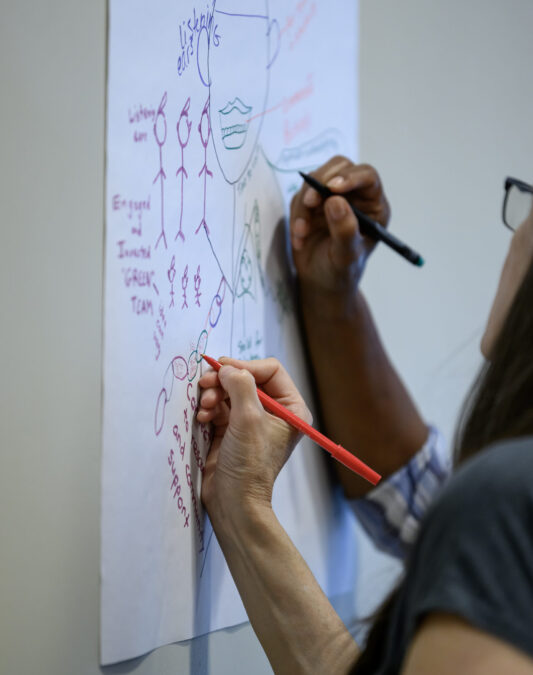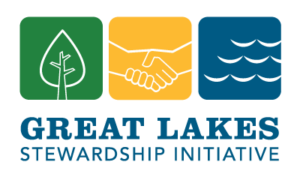Everyone is an educator; everyone is a learner. We respect the dignity, professionalism, and creativity of educators, both formal and informal, and approach interactions with love, grace, flexibility, humor, and fun. (SEMIS Coalition Principle 7)
At our Winter Professional Development day in late January, we focused our attention to reflecting on the place-based learning projects currently happening in teachers’ classrooms (or that hope to happen in late winter and early spring), and supported each other to plan action projects. This midpoint of the school year is an important time of year to bring teachers, administrators, and community partners together and to remind ourselves of our sense of purpose and to creatively apply our collective experience and shared knowledge to help us solve dilemmas and challenges in the work. Everyone has a different moment in time right now, but we come together to find that common ground and help each other deepen our practices. We ask ourselves, what will this look like in our class, school, and community? How will we include working with community based partners and organizations? What related possible actions are relevant to your students, your objectives for learning and the community?
Winter PD was opened with a moment to look inward and hold silence while we let the bustling world settle inside. Our director, Anna Balzer, provided the holding space for us to pause and remember that we’re in this together. We moved through some housekeeping information and announced our Place-Based Education Partnership Grant Opportunities along with our upcoming Annual Community Forum.
Next, we got up and moving with ’Troika Consultancies’, an exercise where three individuals work through a timed protocol together to help surface solutions to challenges faced in place-based education projects. This high-impact/low-effort exercise was a hit! One of our member teachers shares,
“The most important part for me was the breakout groups of 3 individuals where we did the interviewing method of discussion. I took a lot from getting both team members insight to my projects.”
Another member explains,
“The activity where we spoke to 2 others about challenges we have currently with our projects was very helpful. The insight from others that are in different careers was eye opening and helped me think outside of my toolkit.”
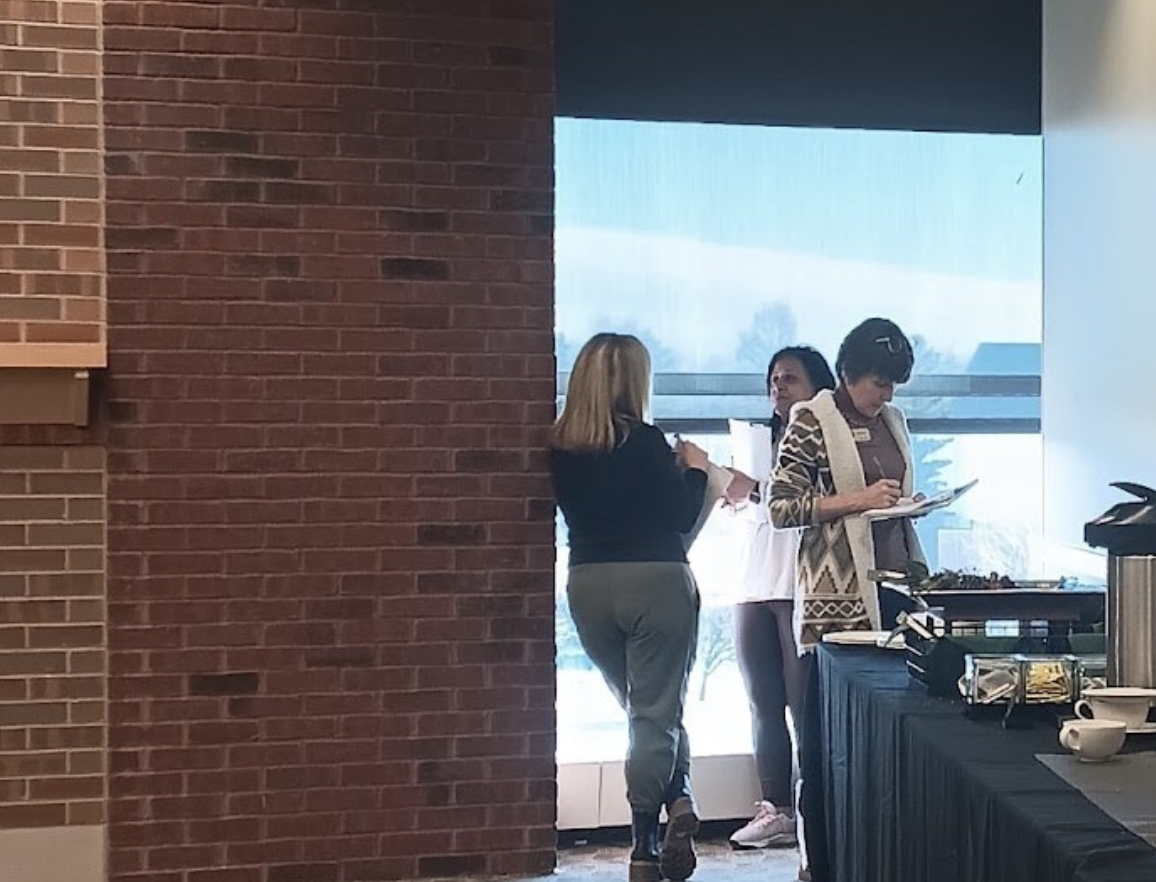
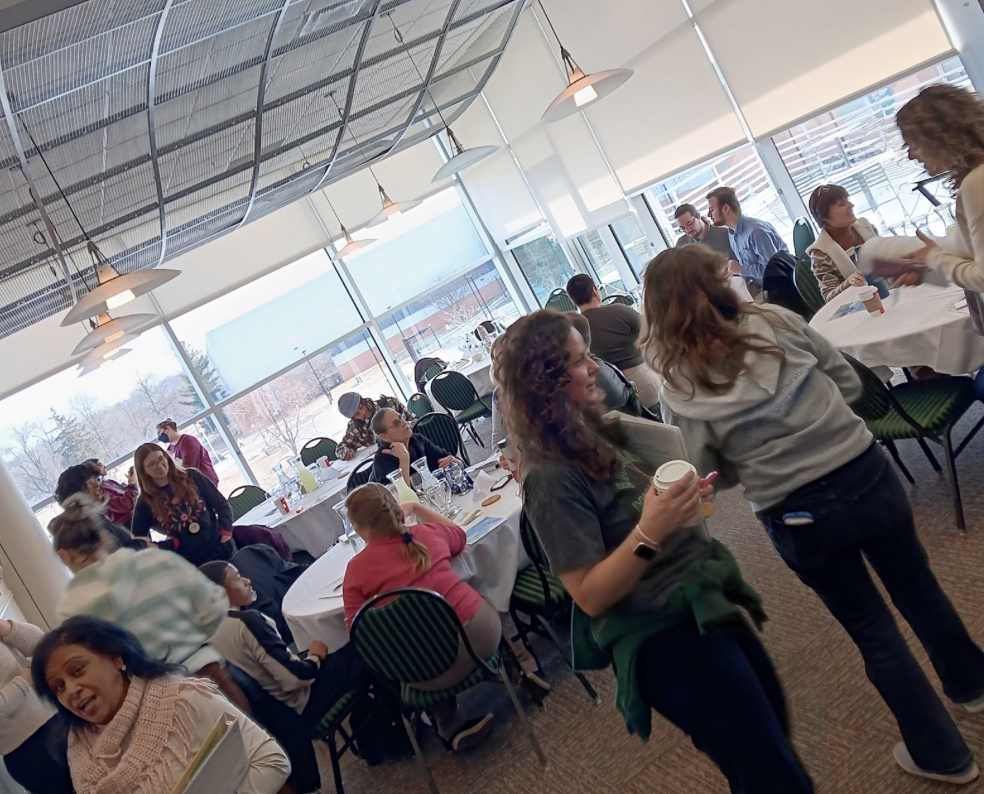
Caption for both images: Members work in Troika groups to engage shared expertise! These consultancies draw on the strengths in the room, and wisdom from the field. Three people share a dilemma each from their place-based instruction and benefit from their peer’s knowledge – a high impact thinking routine!
Connections+Fun: Community Partners in PBE Action Projects Bingo
Community partners play different (and important!) roles in place-based education. During our Winter PD, we used a fun bingo game to get to know the participating community partners and how they might support teachers’ and students’ place-based learning goals. This time of year is great for deepening community partnerships. Maybe you’ve been in touch with a climate scientist to find real-time data charts for your class to use. Now is a great time to plan for the scientists to visit your students at school, or to take a field trip to visit them in the field and observe their role. Or perhaps it’s a time to plan a visit to the city council where your students can share their learning and contribute to the public efforts to build resilience in the community. The community partners who joined us at Winter PD also found value in making connections with educators. One community partner shared:
“The community partner discussion was extremely beneficial to feeling like a contributing member of the coalition and feeling like I have expertise to share and a way to connect with other like minded people. I keep coming back to my role as “consultant” “connector” “translator” “listener”…there is strength and passion there – thank you for helping me remember that, even when it’s not in my current formal job description.”
THANK YOU, COMMUNITY PARTNERS, FOR JOINING US AND SUPPORTING TEACHERS IN SE MICHIGAN!
Belle Isle Nature Center, Ryan Vance
The Greening of Detroit, Jimmy Garner
Detroit Area Youth Uniting MI (DAYUM), Julia Cuneo and Harry Susalla
Detroit Bird Alliance, Brittany Leick
Detroit Outdoors Collaborative, Jac Kyle
Detroit River International Wildlife Refuge, Todd Weston
Eastside Community Network, Keem King
GLISA, the NOAA Great Lakes Climate Adaptation Partnership (CAP), Omar Gates
Make Food Not Waste, Qing Tiffany
MI DNR Outdoor Adventure Center, Michelle Serryn
MI Sea Grant/NOAA GLERL, Rebecca Nielsen
MI Sea Grant/MSUE, Angela Scapini
U of M Dearborn Environmental Interpretive Center, Dorothy McLeer
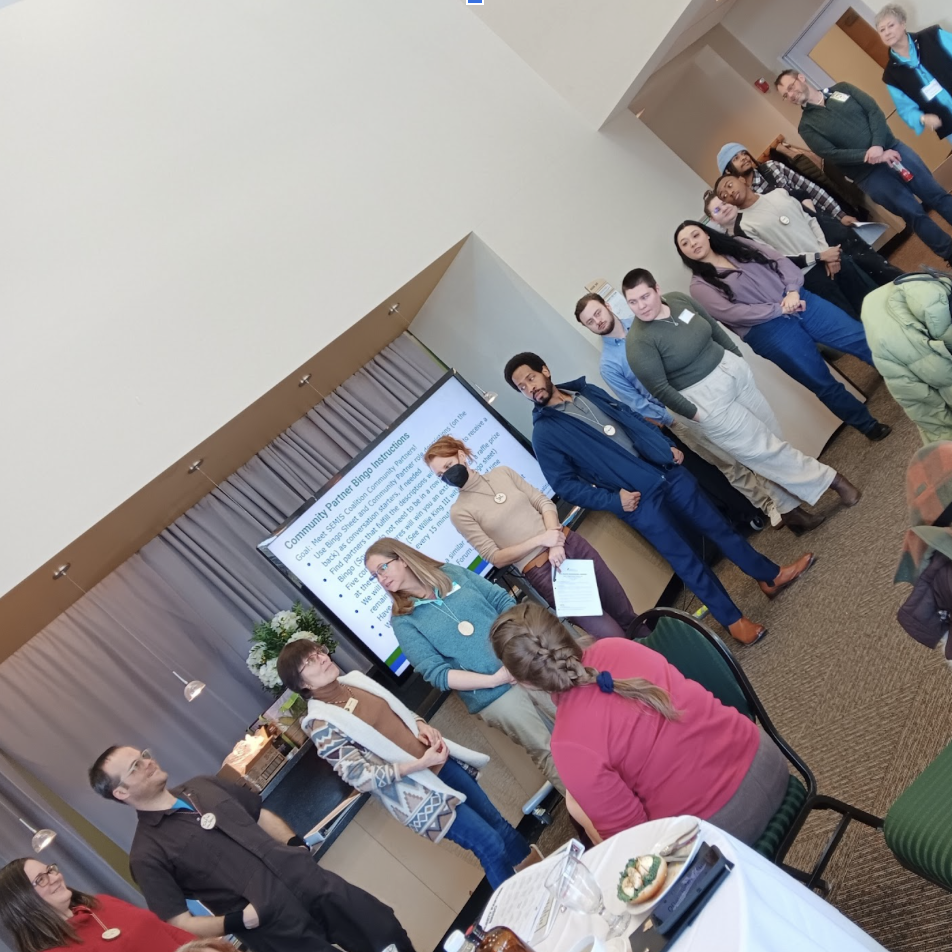
Image Caption: Partners gather to introduce themselves before their session. We had representiation from over 10 organizations and individuals!
Food Not Waste! Lunchtime Speaker
We’d heard from teachers an interest in building their knowledge and skills in leading place-based projects that are climate-focused, a subject that can at times seem daunting. Qing Tiffany, with Make Food Not Waste spoke to exactly this topic at our lunchtime presentation! The connection between food waste and climate change and give them some examples, perhaps different scales, of how local communities, businesses, and individuals are addressing climate change through food waste reduction. Learning more about climate actions their students can take.
“I very much enjoyed learning from Qing Tiffany about the Make Food Not Waste. I have been sharing this information widely since Thursday.”
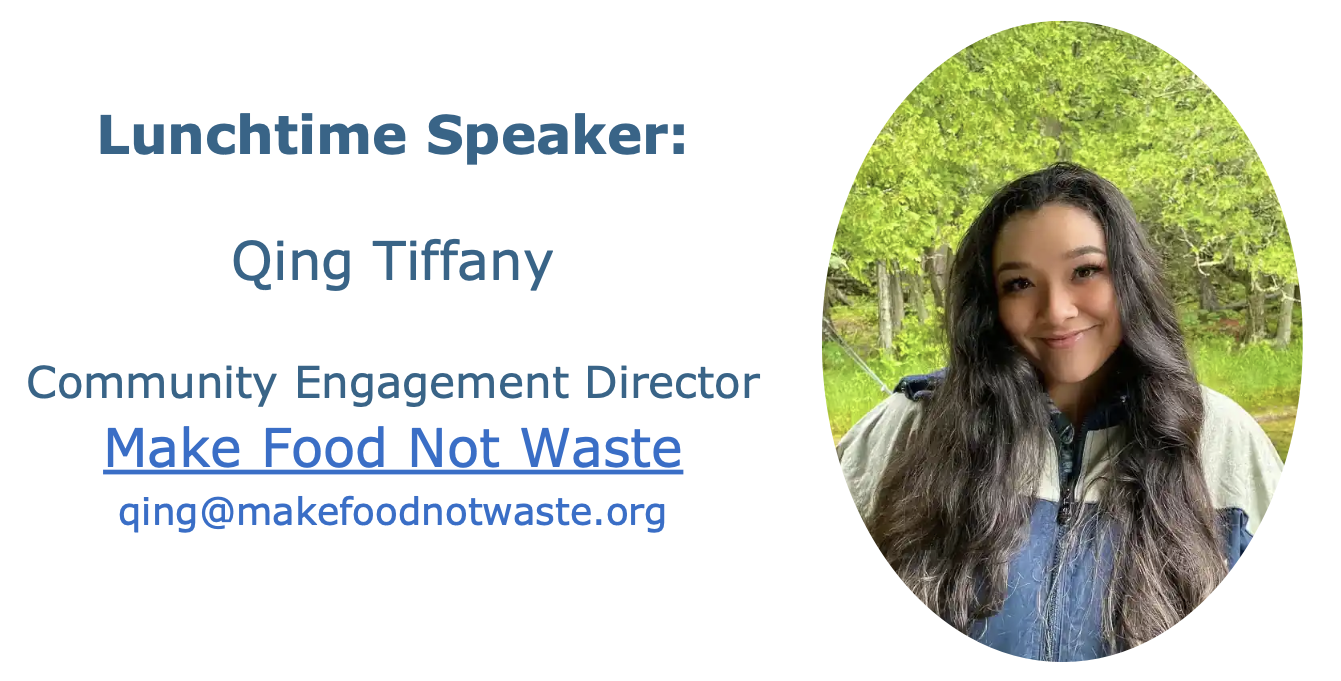
We also received a visit from EMU’s Director of Community Wellness and Sustainability, Beth Smith who educated us on the university’s efforts to reduce food waste and increase composting practices. Did you know that,
“In the 2022-2023 academic year, dining services began partnering with My Green Michigan (a Wixom composting facility) to compost pre- and post- consumer food scraps at Eastern eateries and expanding to dining commons and the 5 eateries in the student center in March 2023. Of the total food waste that year (16.1 tons), approximately 40% (6.3 tons) was composted, and an additional 15% (2.2 tons) was donated. Less than half went to the landfill.” Learn more by visiting EMU’s sustainability practices web page!
Furthering place-based education practices: What people tell us they take away…
One important part of this event is that we leave understanding how we as a staff team can support teachers, partners, and students to have successful PBE inquiries and action projects. “I’m thinking about how we can connect with and utilize community partnerships. Many ideas are swirling in my head but one is that we could have a parent come to our school and present their work/passion to the staff and then to the students. Our school could use that as a springboard to start projects based on our kids’ questions. For example, the food waste presentation could spark so many projects that could integrate standards while connecting the whole school and lead to lots of action. We have typically reached out to partners after we have determined the path of the project but we could also empower the partner to inspire the path.”
Closing reflection
We almost always close with a tradition. We form into a circle and someone kicks us off by sharing a ‘one-word takeaway’ that reflects their feelings on the vent. It’s a meaningful way to conclude a day of learning together. We are reminded of the shared experience, the importance of reflection, even short ones, and affirm for ourselves that there is value in our work! Circles formations invite us to end the day all on the same level.
‘By The Numbers’, our Winter PD included,
-
- 30 Teachers from 17 schools in SE Michigan
- 15 Elementary teachers
- 12 High school teachers
- 3 Middle school teachers
- 2 Administrators and 9 Instructional Coaches
- 12 Partners organizations represented

